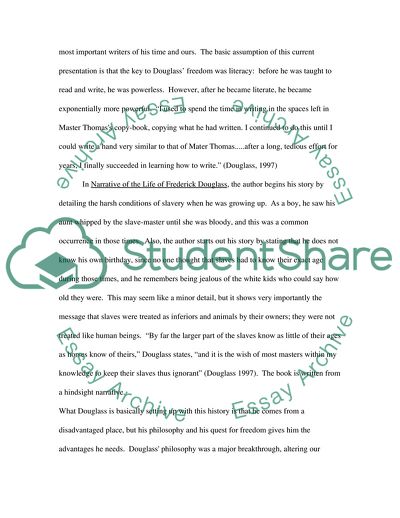Cite this document
(Philosophical Perspective of Douglass' Slave Narratives Report Example | Topics and Well Written Essays - 1500 words, n.d.)
Philosophical Perspective of Douglass' Slave Narratives Report Example | Topics and Well Written Essays - 1500 words. https://studentshare.org/philosophy/1742500-philosophical-perspective-of-frederick-douglass-narrative-history
Philosophical Perspective of Douglass' Slave Narratives Report Example | Topics and Well Written Essays - 1500 words. https://studentshare.org/philosophy/1742500-philosophical-perspective-of-frederick-douglass-narrative-history
(Philosophical Perspective of Douglass' Slave Narratives Report Example | Topics and Well Written Essays - 1500 Words)
Philosophical Perspective of Douglass' Slave Narratives Report Example | Topics and Well Written Essays - 1500 Words. https://studentshare.org/philosophy/1742500-philosophical-perspective-of-frederick-douglass-narrative-history.
Philosophical Perspective of Douglass' Slave Narratives Report Example | Topics and Well Written Essays - 1500 Words. https://studentshare.org/philosophy/1742500-philosophical-perspective-of-frederick-douglass-narrative-history.
“Philosophical Perspective of Douglass' Slave Narratives Report Example | Topics and Well Written Essays - 1500 Words”. https://studentshare.org/philosophy/1742500-philosophical-perspective-of-frederick-douglass-narrative-history.


